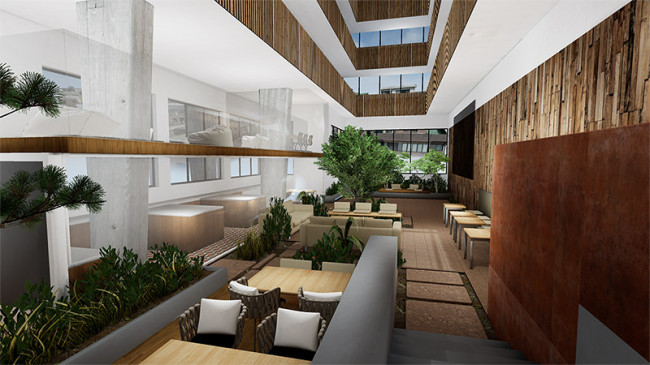Office Consulting
[INTERVIEW] Co-living gets luxurious upgrade
[THE INVESTOR] Co-living, a flexible, community-driven housing, is heating up in big cities with high rents and few affordable housing options. The operators, mostly startups, offer fully furnished apartments, common areas and a sense of belonging. That’s why they are often called “dorms for grown-ups.”
In Korea where the concept is still brand new, co-living spaces are getting a luxury upgrade to appeal to young professionals, with big companies jumping into the market.
“Mutual trust is the key to co-living. In this nascent market, big companies can guarantee that trust,” Kim Hee-sun, general manager of Kolon Global, construction unit of Korean conglomerate Kolon Group, told The Investor in a recent interview.
 |
Treehouse's largest penthouse loft suit |
Kolon is one of the Korean builders that have launched their own co-living brands in recent years. While most of their projects are aimed at offering fashionable housing at cheaper prices, the firm is carrying out a fancier experiment by opening a new eight-story luxury complex in Gangnam, one of the city’s most coveted residential areas, in October.
The Treehouse consists of 72 fully furnished studios equipped with different styling themes. Unique features include a co-working space, a rooftop terrace, a common kitchen, a movie theater and pet park and wash services.
Unlike other co-living startups that lease some floors in a building, Kolon designed and built the whole complex for co-living from the beginning. Considering the huge land costs in the Gangnam area that made up more than 50 percent of the construction cost, Kim said, it was also a project only few big companies can try.
“Co-living business is not just about the building but also about its operation. We have worked on the project over the past two years with professionals from different sectors,” she added, saying a residential manager who speaks English will oversee the overall maintenance and arrange activities for tenants.
 |
Treehouse's common space |
The issue is still pricing. The monthly rent starts from 1.29 million won (US$1,153), which compares to some 800,000 won average in the adjacent area.
“Pricing is our biggest concern because monthly rental is still less favored among Koreans,” Kim said.
Jeonse is a unique home rental system in Korea, under which tenants make a lump sum deposit, about 60-70 percent of the home price that is fully returned when the lease expires. Even though monthly rents are increasing, many Koreans prefer raising Jeonse deposit rather than paying monthly rents.
The firm plans to first target young professionals who have experienced co-living or monthly rentals in other big cities. If they fully embrace quality living in the complex and their positive reviews are shared enough, Kim said, it hopes the pricing issue could be resolved.
“Now single-member households make up more than 70 percent of the total rents here. An interesting fact is they put priority on privacy but at the same time they don’t want to feel isolated,” she said. “Our luxury experiment could help gauge the marketability of co-living here.”
By Lee Ji-yoon (jylee@heraldcorp.com)








